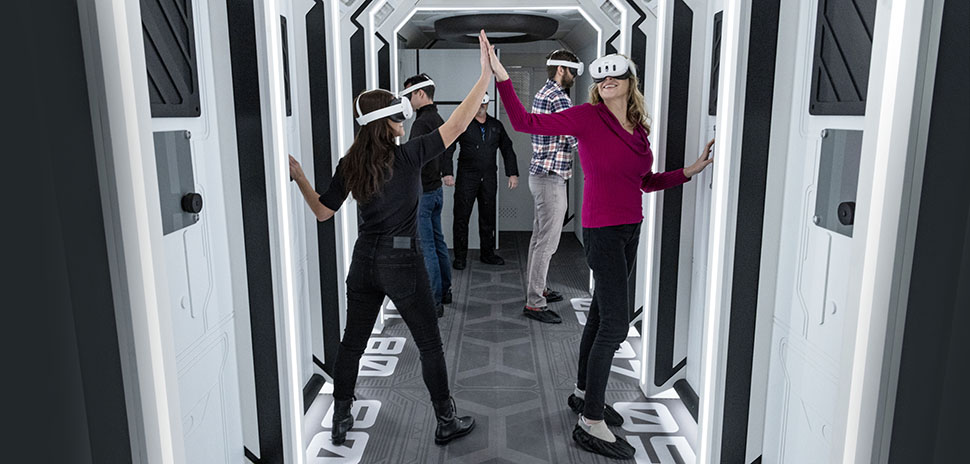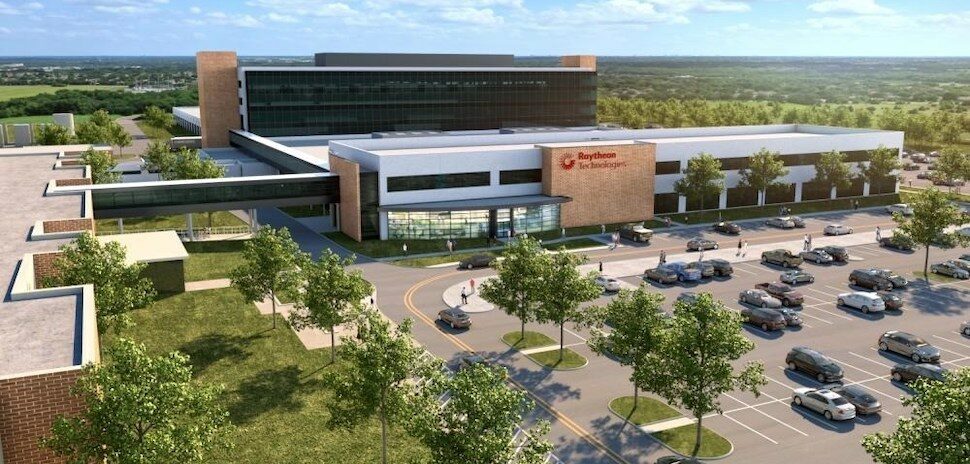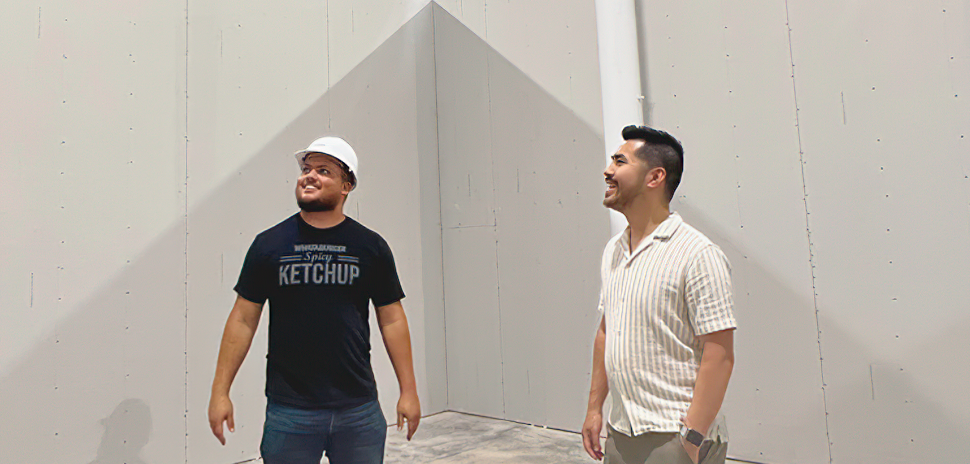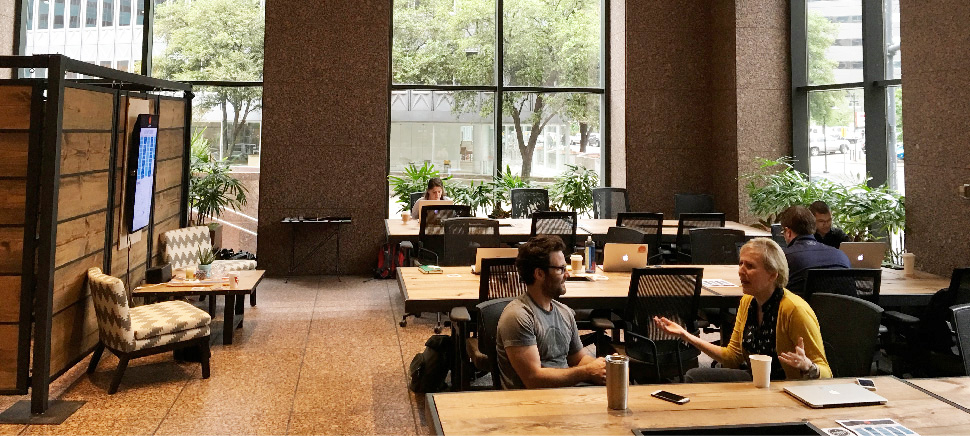NASA plans to return astronauts to the Moon’s surface in 2026 on Artemis III. But why wait? You can go there yourself now, thanks to Dallas-based Back to Space—and you don’t even have to leave Dallas to do it.
The space-themed entertainment company has built a “mixed-reality” Moon base out of shipping containers on the site of the former Valley View Center, just off the LBJ service road between Preston Road and Montfort Drive. Using immersive theater, cutting-edge tech, and interactive storytelling, Back to Space is presenting “The Lunar Light,” a VR experience that takes “space travelers” to a near-future world of space exploration by engaging “all five senses.”
The pop-up experience launched Thursday and runs through April 27.
Back to Space calls the experience “part live interactive theater, part virtual reality, and unlike anything you’ve ever experienced.” Customers—er, space travelers—are transported to a research base on the Moon, “where they will risk their lives to uncover the mystery of what a large asteroid left behind on the lunar surface.”
You’ll think you’re really on the Moon—and wearing a customized Moon suit
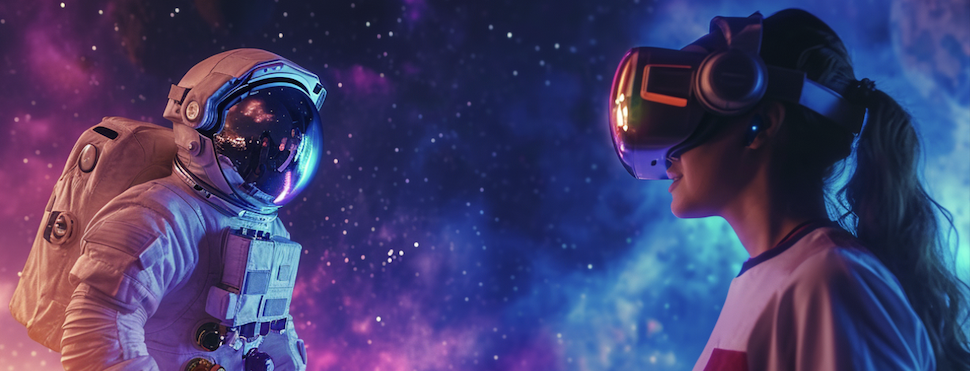
[Image: Back to Space]
Two members of the Dallas Innovates team got a preview of the experience last weekend. While some last-minute tweaks were still being worked out—VR headset calibration and so on—the experience itself verged on the amazing at times. The highlight of the experience was seeing our fellow two space travelers and our own magically “suited up” arms, hands, and torsos as we moved across the Moon’s surface inside a shuttle, with the Earth glowing blue above the mountainous white horizon outside.
Engaging “cast members” acting as Moonbase crew members led us through multiple phases of the experience, showing us how to work controls and mine asteroid samples. They also introduced us to a little robot named DEEJ along the way. At times, we felt convincingly in stunning lunar motion in a kind of 2001: A Space Odyssey journey—even though we were actually standing in a stationery shipping container 100 yards from LBJ traffic. (Without giving away any spoilers, we may have saved the entire lunar base on our “mission,” too.)
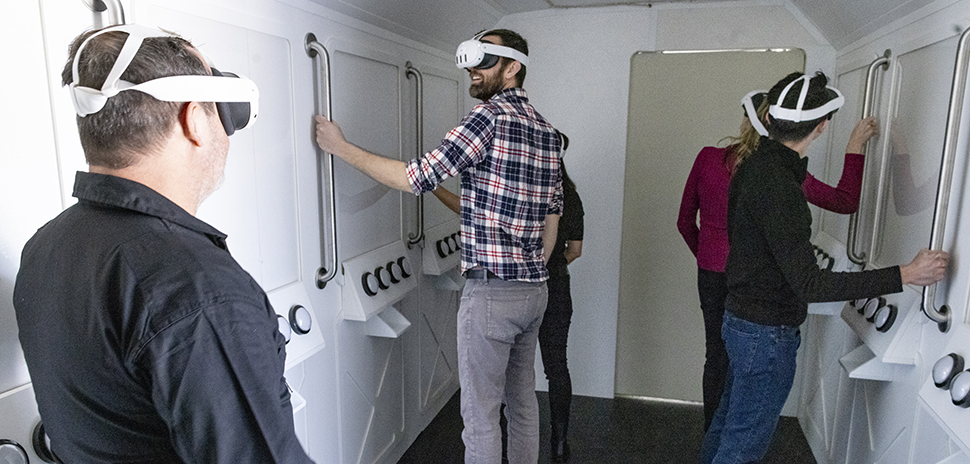
Space travelers trying out “The Lunar Light” VR experience really feel like they’re operating controls and traveling across the Moon’s surface just outside. [Photo: Back to Space]
Founded by granddaughter of an Apollo 14 astronaut
Danielle Dallas Roosa, the daughter of an F16 fighter pilot and granddaughter of Apollo 14 astronaut Stuart Roosa, has space in her DNA. While her grandfather orbited the moon solo as Alan Shepard and Edgar Mitchell took their historic lunar stroll, Roosa is inspired to chase her own cosmic dreams.
Fast forward to today, Roosa is a driving force behind Back to Space, a startup that’s all about discovery and adventure. With a stint at NASA and a background in Hollywood storytelling, Danielle brings a unique narrative flair to the company, making sure that every mission is not just a scientific endeavor, but an epic tale waiting to be told.
The story of Back to Space began serendipitously when Roosa found herself on a plane ride from LA to Dallas with Jim Keyes, former 7-Eleven and Blockbuster CEO, who would later become a co-founder and board member.
That chance encounter sparked a conversation that would lead to the formation of a stellar team of industry leaders and visionaries, including Co-Founder and Board Member Michael Gorton, the founder and former CEO of Recuro Health and TelaDoc, who was Keyes’ first call to launch the company.
Together, co-founders Roosa, Keyes, and Gorton have assembled a dream team to propel Back to Space forward. CEO Gabriella Zielke, who is an iconic figure in the North Texas startup ecosystem, brings her strategic vision to the table, while President and COO Matt Thompson ensures that every mission runs smoothly.
Tech meets sci-fi storytellers at Back to Space
Zielke, the CEO of Back to Space, blends a unique mix of tech entrepreneurship, creative writing, and passion for space exploration that seems tailor-made for her role. An entrepreneur who co-founded the Tech Wildcatters accelerator in Dallas, Zielke transitioned from tech to literature after selling the company in 2018, dedicating time to writing a science fiction novel, short stories, and a screenplay. Her debut novel, “The Sound of Creation,” a science fiction thriller, hit the shelves in 2022.
Graduating with a Masters in creative writing and literature from Harvard this year, the CEO’s academic credentials complement her practical experiences as a small-aircraft pilot and deep-rooted interest in space, dating back to persuing astrophysics in college and leading the astronomy club as president.
Adding to the organization’s entrepreneurial and literary dimensions, board member and serial entrepreneur Gordan is a fellow author who recently published the sci-fi adventure novel “Tachyon Tunnel.”
The power of science fiction
Zielke is a big believer in the power of science fiction. Sure, some people may dismiss it as just frivolous entertainment, but the CEO points out how sci-fi has actually been ahead of the curve in predicting and shaping the future, especially during the space race era.
For Zielke, science fiction isn’t just about escaping reality— it’s about imagining a better future and inspiring people to work towards making it happen. By bringing people into these immersive sci-fi worlds, she wants to spark their sense of wonder and possibility, and get them excited about what tomorrow could bring.
With Back to Space, Zielke isn’t just building a company, she’s hoping to kickstart a movement of dreamers and doers who are ready to reach for the stars.
Zielke’s goal for Back to Space is to create a new kind of storytelling experience—one that’s engaging, interactive, and immerses the audience in the story. She wants to build on the success of franchises like “Star Trek,” which changed the game for science fiction on TV and in movies. The idea, she told us, is to create physical spaces where people can step into the story and be a part of it, rather than just watching from the sidelines. It’s all about making the experience tactile and participatory.
‘The most tactile VR experience on the market’
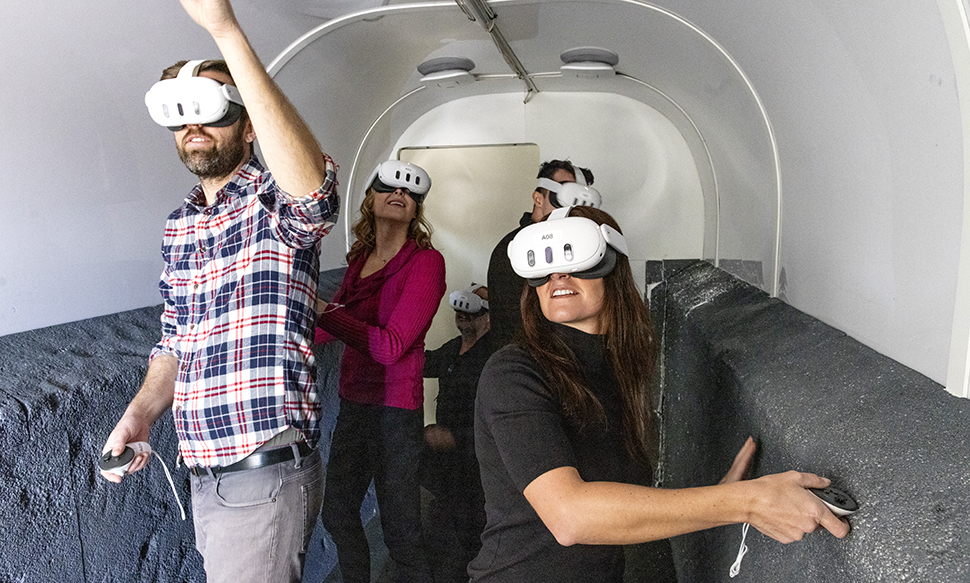
Mining for mysterious asteroid residue during “The Lunar Light” experience from Back to Space. [Photo: Back to Space]
“I can confidently say the world has never seen this type of VR before,” Zielke told Dallas Innovates of The Lunar Light experience. “The convergence of new headsets, rendering technology, and AI—delivered inside the confines of shipping containers—means we’re creating the most tactile VR experience on the market today.”
Zielke believes experiences like “The Lunar Light” could even help drive investment in VR technology. Immersive and narrative-driven interaction are key to driving consumer adoption of VR headsets like Apple’s, she said.
Building out the shipping containers into what feels like a Moon base environment offered its own adventures, Zielke told us.
“We put our teamwork skills to the ultimate test this month, along with Jack Roosa, and major final assists from Michael Gorton and Will Mangum,” the CEO said. “There’s nothing that will challenge a relationship like doing construction, and I’m proud to say we worked together seamlessly. We even had a few laughs and late margaritas along the way.”
Roosa says the company’s journey has been bolstered by Co-founder and Board Member Keyes, who, according to Roosa, “has supported us throughout our ventures.” At the recent Lunar Light preview, Keyes was on hand with his new book Education Is Freedom, which “outlines the importance of education for all mankind, the power of education to change our world, and the wisdom to unlock our personal freedom while preserving our democracy.”
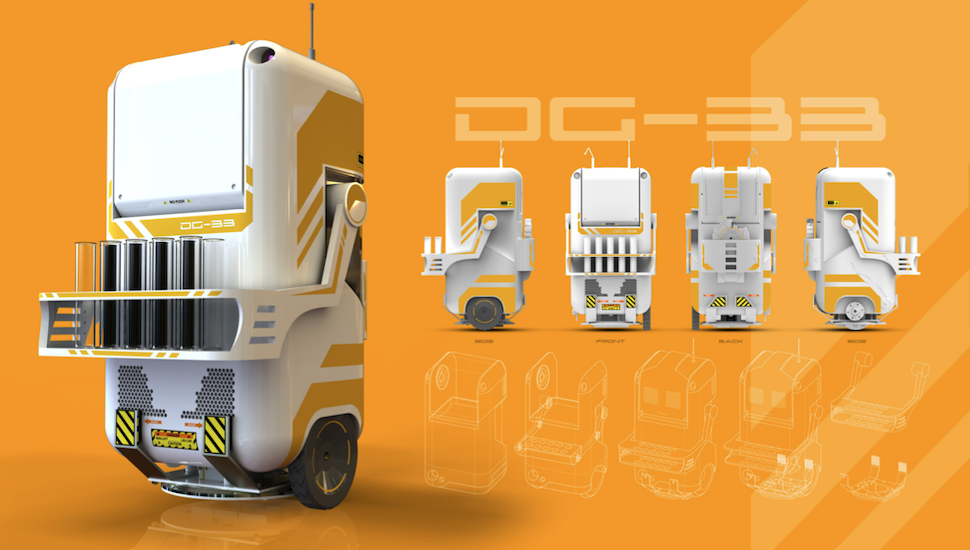
DEEJ is a robot that participates in “The Lunar Light” experience from Back to Space. [Image: Back to Space]
Apollo 16 Astronaut Charlie Duke set to try ‘The Lunar Light’ this Sunday
Back to Space has a panel of advisors who bring authenticity and expertise to the startup’s space-themed experiences. Among them is Charlie Duke, who became the 10th man to walk on the moon as a crew member of Apollo 16 in 1972. Duke is providing invaluable insights to ensure the experiences mirror the reality of space exploration, Back to Space said, and is slated to put on a VR headset and experience “The Lunar Light” himself this coming Sunday.
David Anderman, former general counsel at SpaceX and Lucasfilm, is another member of the advisor panel. His expertise in space and narrative is “ideally suited for their project,” the Back to Space team said.
Further strengthening their educational outreach is Andy Aldrin, son of Apollo 11 astronaut Buzz Aldrin, the second man to walk on the Moon. Andy Aldrin is “a respected name in space education” and is “inspiring the next generation of explorers,” the company said.
So what’s the next mission for Back to Space?
The company’s overall goal is to first establish a strong foundation in live, interactive experiences—which could set the stage for future ventures into traditional media formats like TV and film.
Zielke said Back to Space is starting with pop up experiences, but has a big vision for larger experiences that can travel the world.
In a video interview last year with Jeff Crilley, Zielke hinted that the group was “building [a] intergalactic moon port and that’s going to be a permanent facility.”
The CEO didn’t disclose the location, but said “it’s intended to be over acreage—everything from a space hotel where you’re basically staying on the moon, to lots of different mixed reality experiences, restaurants, and more.”
Partnering with the Aldrin Family Foundation
Back to Space is causing more buzz (pardon the pun) by partnering with the Aldrin Family Foundation as its educational partner. The foundation will be sending deserving high schoolers to the Lunar Light experience during its Dallas pop-up run. During the preview last week, two 7th-grade charter school students operated tiny robotic Moon rovers across a gigantic lunar map, using laptops with apps they had programmed themselves.
“When you buy a ticket, you have the option to send a deserving student via a donation, or you can go directly through the foundation for larger gifts,” Zielke said.
Speaking of tickets, for ticket info and more information on “The Lunar Light,” you can go here.
![]()
Get on the list.
Dallas Innovates, every day.
Sign up to keep your eye on what’s new and next in Dallas-Fort Worth, every day.










